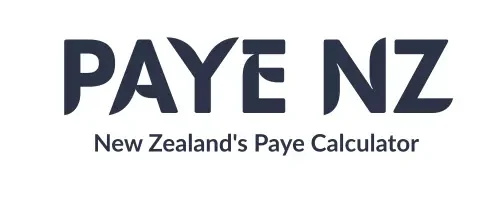The technology industry in New Zealand continues to expand rapidly, with IT specialists playing a pivotal role in driving digital transformation across sectors. From government agencies and healthcare providers to fintech startups and multinational corporations, the demand for skilled IT professionals is growing. This guide offers a comprehensive, up-to-date overview of IT specialist salaries in New Zealand, with a detailed breakdown by experience, region, specialization, and more.

Who Is an IT Specialist in New Zealand?
An IT specialist is a professional who supports, maintains, and manages computer systems and networks. In New Zealand, IT specialists may work in various roles including:
- Network Administrator
- Systems Analyst
- Cybersecurity Specialist
- Technical Support Engineer
- Systems Engineer
Core Responsibilities
- Configuring hardware and software systems
- Monitoring network performance and troubleshooting issues
- Managing cybersecurity protocols
- Providing technical support to end users
- Ensuring system compliance and updates
Common Certifications
- CompTIA A+, Network+
- Cisco CCNA
- Microsoft Certified Solutions Expert (MCSE)
- AWS Certified Solutions Architect
IT Specialist Salary in New Zealand (2025)
Salaries for IT specialists in New Zealand vary based on experience, location, and industry. Below is a general salary guide based on current market data.
Average Salary by Experience Level
| Experience Level | Average Annual Salary (NZD) |
|---|---|
| Entry-Level (0–2 years) | $55,000 – $70,000 |
| Mid-Level (3–5 years) | $70,000 – $95,000 |
| Senior (6+ years) | $100,000 – $135,000 |
Salary Range Chart
Experience Level | Average Salary (NZD)
---------------------------------------------
Entry-Level | 55,000 - 70,000
Mid-Level | 70,000 - 95,000
Senior-Level | 100,000 - 135,000IT Specialist Salary by Region
Salaries differ significantly across cities, largely due to the cost of living, availability of jobs, and presence of tech companies.
| City | Average Salary (NZD) |
| Auckland | $95,000 |
| Wellington | $100,000 |
| Christchurch | $90,000 |
| Hamilton | $85,000 |
Visual: Regional Salary Heatmap (Conceptual)
- Auckland and Wellington offer the highest compensation due to their thriving tech ecosystems.
- Christchurch and Hamilton follow closely, with slightly lower salaries but also a lower cost of living.
Factors Influencing IT Specialist Salaries
1. Experience Level
- Entry-level professionals earn lower salaries but see rapid growth after gaining experience.
2. Certifications
- Certifications from AWS, Microsoft, and Cisco can significantly boost salary potential.
3. Industry
- IT specialists in finance, health tech, and SaaS firms typically earn more than those in education or government sectors.
4. Location
- Metropolitan areas like Auckland and Wellington provide higher salaries due to demand and job volume.
5. Technical Skills
- Proficiency in cloud computing, cybersecurity, and systems architecture commands higher pay.
IT Specialist Salary by Specialization
Specialized IT roles often come with premium salaries due to their complexity and demand.
| Specialization | Average Salary (NZD) |
| Network Specialist | $70,000 – $95,000 |
| Cybersecurity Analyst | $85,000 – $120,000 |
| Systems Administrator | $75,000 – $100,000 |
| DevOps Engineer | $90,000 – $130,000 |
How to Become an IT Specialist in New Zealand: Step-by-Step Guide
Step 1: Obtain a Relevant Qualification
- Pursue a degree or diploma in Information Technology, Computer Science, or Network Engineering.
Step 2: Earn Certifications
- Add industry recognised credentials such as CompTIA, Microsoft, Cisco, or AWS.
Step 3: Gain Practical Experience
- Work as a help desk technician or junior support engineer.
- Internships and volunteer work are valuable.
Step 4: Join Professional Communities
- Engage with NZTech, ITP NZ, and other professional bodies.
Step 5: Apply Strategically
- Use local job platforms like SEEK, Trade Me Jobs, and Absolute IT.
- Tailor your resume to highlight relevant skills and certifications.
Job Demand and Future Outlook
According to MBIE and Immigration New Zealand:
- IT roles are consistently on the Long-Term Skill Shortage List.
- Cybersecurity, cloud computing, and DevOps are growing sectors.
- The Digital Technologies sector is expected to grow 4-6% annually through 2030.
Projected Job Growth (2025–2030)
Year | Projected IT Job Growth
--------------------------------------
2025 | +4.5%
2026 | +5.0%
2027 | +5.3%
2028 | +5.7%
2029 | +6.0%
2030 | +6.2%Benefits Beyond Base Salary
Many employers offer additional benefits, including:
- Flexible work hours and remote work options
- Paid professional development and certifications
- Medical insurance and wellness programs
- Generous annual leave and paid parental leave
Role Comparison: IT Specialist vs. Similar Positions
| Role | Avg. Salary (NZD) | Job Scope |
| IT Support Specialist | $60,000 – $75,000 | End-user support, help desk |
| IT Specialist | $70,000 – $110,000 | Network, security, systems |
| Software Engineer | $80,000 – $120,000 | Code development, testing |
Tips for Salary Negotiation
- Research industry benchmarks using sites like Glassdoor and Payscale.
- Highlight certifications and in-demand skills.
- Ask about total compensation (including benefits).
- Consider timing: post-project completion or annual review cycles.
Resources to Track IT Specialist Salary in New Zealand
- SEEK NZ
- Trade Me Jobs
- Absolute IT Salary Reports
- MBIE Labour Market Insights
Conclusion
The IT industry in New Zealand offers robust career opportunities with competitive salaries, especially for those with in-demand skills and certifications. Whether you’re an entry-level graduate or a seasoned professional, understanding the salary landscape can help you make informed career decisions. As the demand for digital infrastructure continues to rise, so too does the value of skilled IT professionals in Aotearoa.
